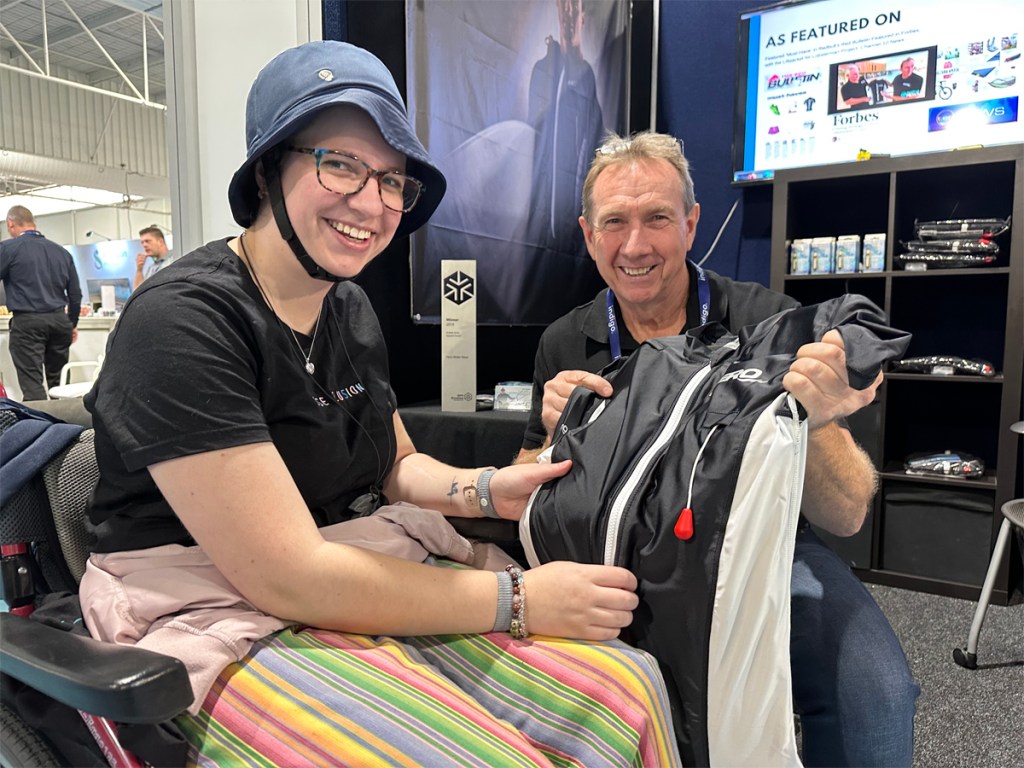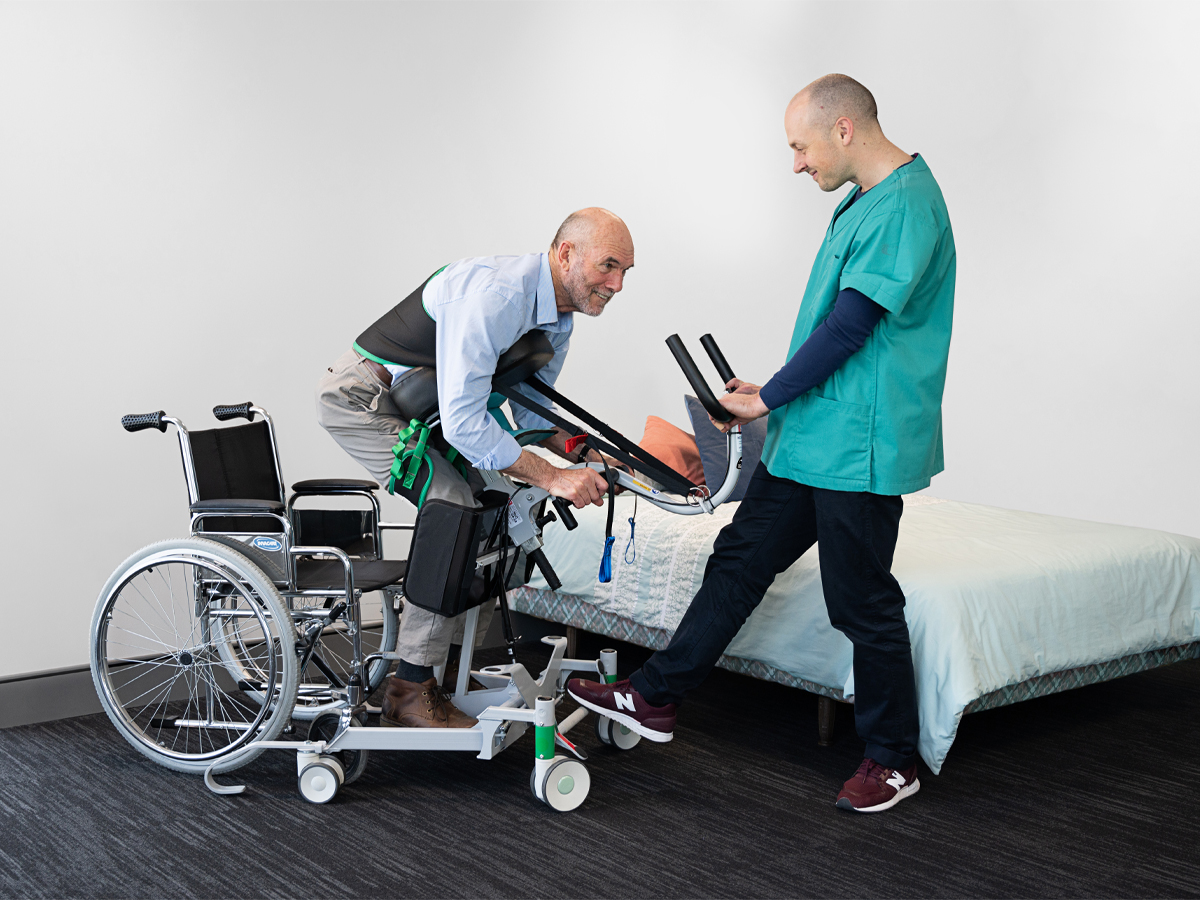“Innovative products to assist people with disabilities in ways never before thought possible” – that’s how one visitor described the offerings at this year’s ATSA Independent Living Expo in Perth.
The Product & Innovation of the Year awards were also announced at the Perth Expo. Taking out the ‘Best New Product 2023’ was the Kera sit2sit, pictured. This innovative transfer aid assists carers to safely and easily transfer a person with limited or no mobility, eliminating the need for traditional hoists or manual transfers. An easy to fit backstrap and chest pad are designed to hold a non-weightbearing person. It is available exclusively from Aidacare.
The ‘Innovation of the Year’ award went to LusioMATE a wearable device for helping to drive greater adherence to physiotherapy goals within and outside clinician appointments. As part of a home exercise program, clinicians can monitor client progress and update movement goals remotely via the in-app dashboard and the device can be calibrated to almost any range of movement.
Emerging trends from the expo included demand for more aids and equipment to support independence and autonomy at home and customer preferences for additional features on mobility aids for enhanced comfort and convenience. For many, the two-day event was the chance to discover one-of-a-kind products.
One visitor, 26 years-old, Jessica Dening came to the expo primarily to look at mobility items because she was moving out of her parents’ home to live independently. However, a buoyancy item called the Hero Inflatable Rash Guard caught her eye. “I am more arty than sporty, but enjoy hydrotherapy sessions and this buoyancy vest could give me the confidence to get back in the water.”
The device has a built-in inflatable chamber that provides buoyancy so people can stay afloat and those with muscle weakness, limited mobility, or balance problems can use it for rehabilitation. It can fit different body shapes and sizes, meets all the standards of a personal flotation device with a UV rating of SPF 50.

The brainchild of surfer John Scott who told F2L: We’ve had great feedback. A mother told us she can now get in a pool alongside her five-year daughter, who has cerebral palsy. A man left paralysed on the left side after suffering a stroke now has the confidence to wear it swimming and sailing.”
There was also much to explore to promote freedom. One WA company, ingeniously called Bee Free after its owner Roland Bee, was keen to share his thoughts on what customers want. “The pandemic caused drawn-out supply issues and people prefer to buy locally to reduce long waiting times, but 80 percent of our business is from a 35 km radius and a lot comes from word of mouth.”
Bee Free is the only supplier of Afikim scooters in WA. “People are willing to pay for extras. They want lockable boxes, a canopy, and rain side cover because they know that a scooter will get usage most days,” he said. A new solar-powered Afikim scooter was unveiled at the expo and will be launched next year, putting Afikim firmly in the spotlight with scooters driven by sunlight.
With plenty of stands offering a wide range of products and services, industry experts delivered a series of seminars. One, AT Chat, part of the Independent Living Assessment (ILA) group, introduced its new service to support people making assistive technology choices. Known as the AT Chat Mentoring Service, it has individuals with lived experience of disability offering personalised advice.
“If someone is looking for a product for a specific task, one of our qualified mentors will do the research. For example, we had an enquiry about a speech-to-text device,” innovation manager Kristy Harper said. “One of our mentors, who has a Cert IV in Assistive Technology Mentoring, researched the products, gave comprehensive feedback and supplied a letter of recommendation. Funding for this service can come from the NDIS Capacity Building Supports Budget.”
Photo: Jessica Dening with John Scott from Hero Inflatable Rash Guard

